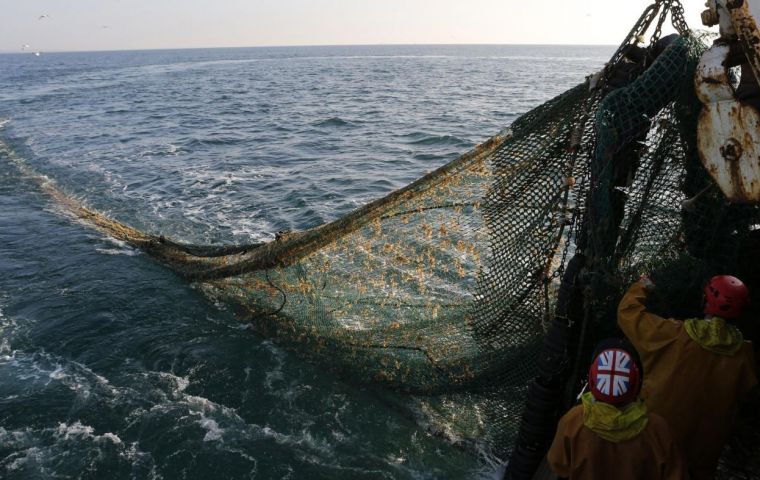MercoPress. South Atlantic News Agency
UK parliamentary committee urges MSC to review sustainable fishing standards
 The House of Commons' Environmental Audit Committee (EAC) issued recommendations following its Sustainable Seas inquiry
The House of Commons' Environmental Audit Committee (EAC) issued recommendations following its Sustainable Seas inquiry  “It is vital the MSC deals with incidences of shark finning in certified fisheries,” said committee member and On the Hook supporter Zac Goldsmith MP
“It is vital the MSC deals with incidences of shark finning in certified fisheries,” said committee member and On the Hook supporter Zac Goldsmith MP A UK parliamentary committee has called on the Marine Stewardship Council (MSC) to address concerns about the organization's standard for sustainable fishing in the world's oceans. The House of Commons' Environmental Audit Committee (EAC) issued recommendations following its Sustainable Seas inquiry, whose findings were published last November.
The inquiry focused on how marine life can be protected from climate change, over fishing and pollution, and how the UK government can “create a sustainable blue economy”.
Among other recommendations, the committee urged the government to take urgent action to help create a legally binding ‘Paris Agreement for the Sea’, in order to protect the world’s oceans. It also suggested bringing forward the 2042 target date for achieving avoidable plastic waste.
The committee also noted the criticism recently directed toward the MSC, as regards how and which fisheries are certified as sustainable.
The EAC inquiry was supported by a campaign led by On the Hook and backed by scientists, retailers and non-governmental organizations, including Professor Callum Roberts from the Environment Department at the University of York, World Wise Foods (WWF), the Blue Marine Foundation and chef and TV personality Hugh Fearnley-Whittingstall.
Activists' criticisms of MSC standards are mainly directed at their evaluation unit, the need to take into account the carbon from ships and concerns about shark finning.
In order to ’ensure consumer confidence’ in MSC certification, the committee recommended the NGO ’addresses specific criticisms’ into the upcoming five-year review into its standards, and strengthen them accordingly. The review should be ’transparent and independently evaluated’, committee members warned.
“It is vital the MSC deals with incidences of shark finning in certified fisheries,” said committee member and On the Hook supporter Zac Goldsmith MP.
“They must provide up-to-date evidence that finning is not taking place and, when isolated incidents do occur, make appropriate sanctions. In line with the report’s recommendations, I look forward to the publication of data verifying the reduction of this practice in 2019,” he added.
Erin Priddle, director of the MSC program in UK, said the NGO took these concerns seriously, and that she hoped the review would reassure critics of the program’s rigor.
“While some claim the bar is too low, others warn that it is ‘becoming too high even for world leading fisheries’. This illustrates the challenge of a global standard: if the bar is raised too high, it risks preventing fisheries – such as small-scale and developing world fisheries – from ever reaching that bar,” Priddle explained. (FIS).




Top Comments
Disclaimer & comment rulesCommenting for this story is now closed.
If you have a Facebook account, become a fan and comment on our Facebook Page!